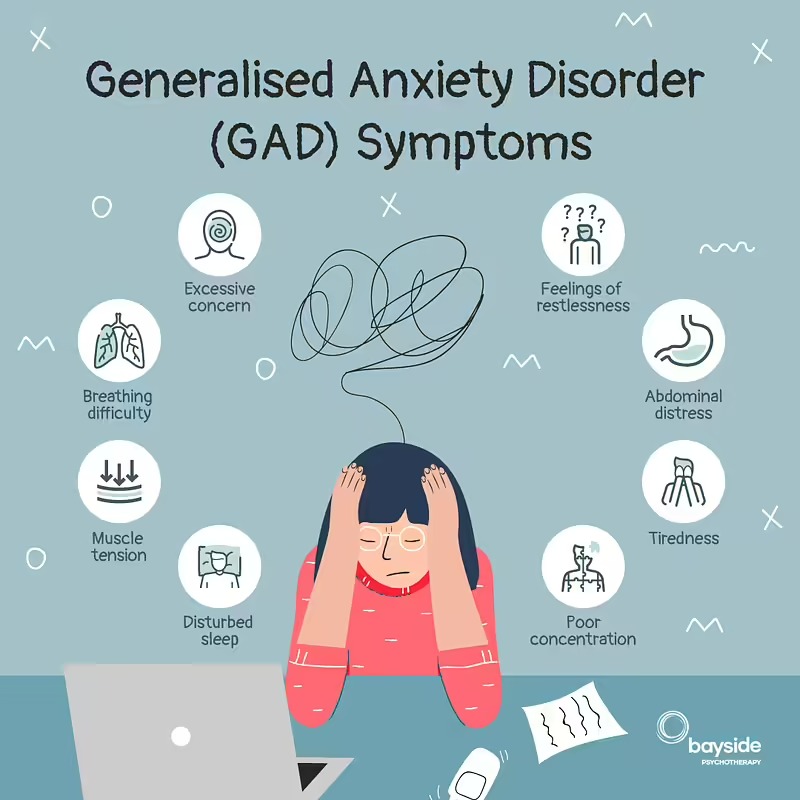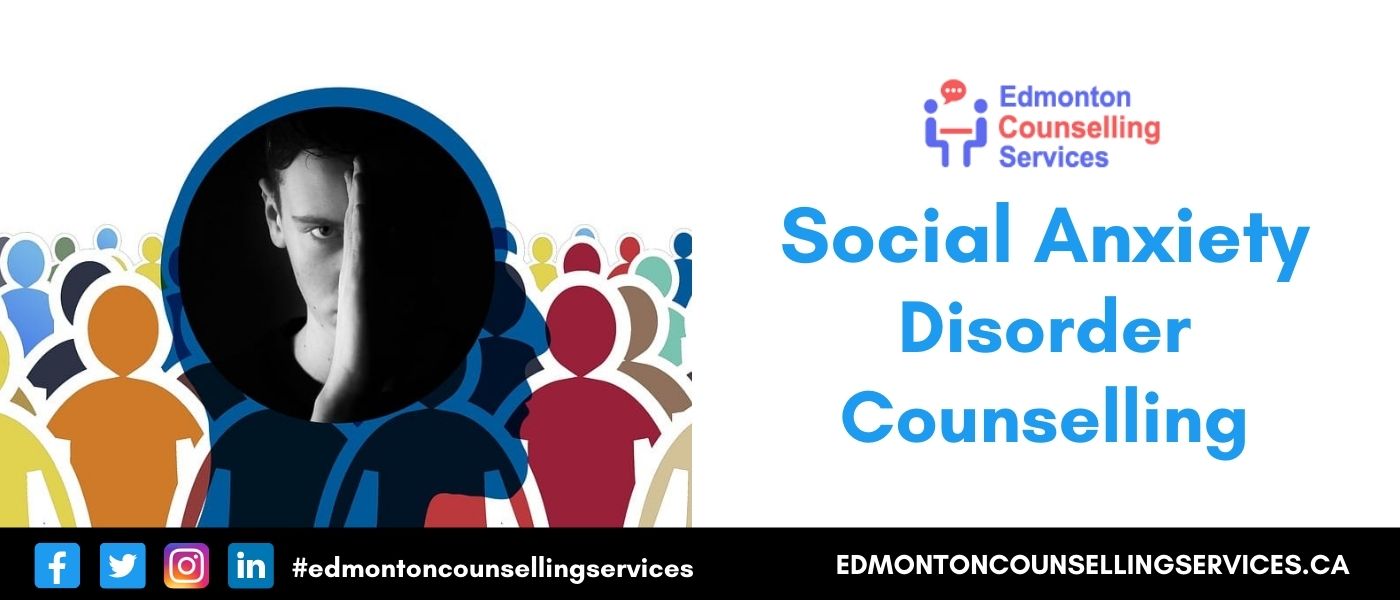Counselling for anxiety disorder: Custom sessions crafted for your situation
Counselling for anxiety disorder: Custom sessions crafted for your situation
Blog Article
Exploring Different Methods in Therapy for Anxiousness Disorder for Lasting Modification
When tackling stress and anxiety problems, it's important to explore a range of counseling strategies. Each approach supplies unique understandings and devices to aid you handle your signs and symptoms properly. You could locate that incorporating strategies can generate the most effective results. Nonetheless, recognizing the subtleties of these methods is crucial to promoting long lasting change. What happens if the appropriate mix could release a brand-new degree of emotional well-being for you?
Recognizing Anxiousness Conditions: A Short Overview
Anxiety disorders, which affect countless people worldwide, can significantly affect every day life. You could experience frustrating sensations of anxiety or fret that seem unmanageable. These feelings can bring about physical signs and symptoms like a racing heart, sweating, or perhaps dizziness. Typical types of stress and anxiety problems include generalised stress and anxiety disorder, panic disorder, and social anxiousness condition. Each has special indications, yet they all share a tendency to disrupt your regular and relationships.Understanding the origin creates of your stress and anxiety is vital. It could come from genetics, mind chemistry, or life experiences. Recognizing your triggers can aid you manage your actions better. It is essential to keep in mind that you're not the only one in this battle. Lots of people encounter similar obstacles, and looking for assistance is a strong step toward feeling better. By discovering stress and anxiety conditions, you're already on the path to understanding and managing your condition better.
Cognitive-Behavioral Therapy: Challenging Adverse Thought Patterns
In Cognitive-Behavioral Therapy, you'll begin by identifying the unfavorable thought causes that add to your anxiousness. When you recognize these ideas, you'll work with replacing them with even more favorable alternatives. Together, you'll develop reliable coping strategies to help handle your anxiety in everyday situations.
Determining Unfavorable Idea Triggers

Identifying the details triggers behind your negative thoughts can be necessary in taking care of anxiety when you run into moments of distress. Begin by taking notice of circumstances that provoke sensations of fear or fear. Is it a congested space, a forthcoming target date, or a conversation with certain people? Write these circumstances in a journal. This will certainly assist you recognize patterns in your reasoning. Additionally, notification physical feelings that accompany your negative thoughts, like an auto racing heart or tightness in your chest. By pinpointing these triggers, you acquire insight right into what's fueling your anxiety. Comprehending these connections is the first action in challenging those ideas and ultimately gaining back control over your emotional feedbacks.
Changing Thoughts With Positives
Testing negative thought patterns is a vital action in transforming your frame of mind and lowering anxiousness. You might typically find yourself caught in cycles of self-doubt or catastrophic thinking. Rather than allowing these thoughts determine your sensations, practice replacing them with favorable affirmations or reasonable choices. For instance, when you think, "I can not manage this," change it to, "I can manage challenges one step at a time." This simple change can considerably influence your psychological state. On a regular basis recognizing and responding to these adverse ideas aids create a healthier internal dialogue. Bear in mind, it takes time and effort, however continually exercising this technique can bring about lasting change, empowering you to face anxiety with renewed confidence and resilience.
Building Coping Strategies With Each Other
Changing adverse ideas is only the beginning of taking care of anxiety effectively. To develop long-term adjustment, you require to develop coping approaches that encourage you. Cognitive-Behavioral Therapy (CBT) assists you identify and test those unhelpful idea patterns. Together, you and your counselor can discover just how these ideas effect your feelings and behaviors.Start by developing sensible methods, like journaling or mindfulness exercises, that allow you to challenge anxiousness head-on. When you face your anxieties progressively, you'll discover to respond differently.

Mindfulness and Acceptance-Based Approaches: Cultivating Present-Moment Recognition
As you browse the intricacies of anxiety, integrating mindfulness and acceptance-based approaches can significantly improve your capability to grow present-moment awareness. By focusing on the present moment, you'll locate that you can observe your thoughts and feelings without judgment (Counseling services for anxiety). This method aids you acknowledge your anxiousness without feeling overwhelmed by it.Engaging in mindfulness workouts, such as deep breathing, body scans, or led meditations, enables you to ground yourself in your current experience. Acceptance-based approaches encourage you to embrace your feelings rather than combat versus them. When you approve your feelings, they lose their power over you.Incorporating these practices into your everyday routine can transform just how you react to stress and anxiety. You'll establish strength and find out to browse demanding situations with higher simplicity. Inevitably, growing present-moment awareness lays the foundation for enduring adjustment, encouraging you to lead a much more fulfilling life
Exposure Therapy: Confronting Worries Slowly
Exposure therapy assists you face your concerns in a steady means, making it much less frustrating. You'll find out strategies to face anxiety-provoking circumstances action by action, while additionally building coping methods to manage your responses. This strategy empowers you to take control and minimize anxiousness over time.
Progressive Direct Exposure Strategies

When dealing with stress and anxiety, progressively challenging your concerns can be a powerful means to reclaim control. This technique, called gradual direct exposure, involves gradually exposing on your own to the situations or objects that cause your stress and anxiety. Beginning with less intimidating situations and slowly function your method approximately even more difficult ones. For circumstances, if you hesitate of public speaking, you could start by talking in front of a mirror, after that progress to sharing ideas with a pal, and at some point address a little team. Each action helps desensitize you to the worry, constructing your confidence gradually. Remember, it's necessary to rate yourself and celebrate tiny triumphes as you move with this process, strengthening your capacity to manage stress and anxiety effectively.
Structure Coping Techniques
Building reliable coping approaches is vital for handling anxiousness, specifically as you confront your fears gradually - Counseling services for anxiety. One powerful method is exposure therapy, where you start by facing your worries in a controlled way. Begin with less daunting scenarios and gradually function your way up to more difficult situations. This steady direct exposure aids desensitize you to anxiousness triggers, making them less overwhelming.Incorporate leisure strategies, such as deep breathing or mindfulness, to relax your mind during exposure. Track your development, commemorating small victories along the road to improve your confidence. Remember, it's fine to take your time; the objective isn't excellence however stable improvement. By building these approaches, you'll encourage yourself to navigate anxiousness and accept life much more fully
Psychodynamic Treatment: Revealing Source of Anxiousness
Psychodynamic therapy explores the subconscious mind, exposing the origin of your stress and anxiety. By examining your ideas, feelings, and previous experiences, this technique helps you reveal underlying problems and unsettled concerns that may contribute to your existing stress and anxiety. You'll work with a specialist to examine childhood experiences, partnerships, and emotional patterns that form your reactions today.As you gain understanding into these deeper layers of your mind, you'll start to recognize how previous occasions affect your present actions. This understanding can cause catharsis, allowing you to refine feelings you might have suppressed.Through the healing connection, you can likewise recognize defense reaction that may have established over time, providing a more clear path to alter. Inevitably, psychodynamic therapy outfits you with the tools to resolve your anxiousness at its core, promoting enduring change in your psychological health.
All Natural and integrative Approaches: Integrating Strategies for Greater Efficacy
Integrating various therapeutic techniques can enhance your journey towards taking care of stress and anxiety extra successfully. By incorporating components from cognitive-behavioral therapy, mindfulness techniques, and holistic approaches, you can create a tailored strategy that resolves your one-of-a-kind requirements. For example, you could use cognitive-behavioral methods to challenge unfavorable thought patterns while incorporating mindfulness exercises to ground yourself in today moment.Additionally, discovering alternative practices such as yoga exercise or reflection can promote get more info leisure and lower stress and anxiety signs and symptoms. This mix permits you to develop better self-awareness and resilience.Experimenting with these diverse approaches can aid you find what resonates most with you. Bear in mind, it has to do with locating a harmony that functions, instead than staying with a solitary technique. This integrative method not just provides prompt alleviation yet additionally cultivates long-lasting abilities for handling stress and anxiety, encouraging you to reclaim control over your life.
The Function of Assistance Systems: Structure Resilience Via Link
While it may appear that managing stress and anxiety is a singular journey, having a solid support system can play an important duty in your strength. Surrounding on your own with empathetic close friends, household, or support teams creates a risk-free area where you can freely share your sensations and experiences. You advise on your own that you're not alone in this struggle.These connections offer motivation and can give useful coping methods that have actually worked for others when you attach with others. It's also a possibility to obtain viewpoint; buddies can assist you see scenarios in a different way, minimizing feelings of isolation.Moreover, psychological assistance fosters a feeling of belonging, which can substantially alleviate anxiousness symptoms. By leaning on your support group, you can develop strength and deal with difficulties better. Bear in mind, connecting for help suggests stamina, and it can make all the distinction in your trip towards managing anxiety.
Often Asked Concerns
What Are the Typical Signs And Symptoms of Anxiety Disorders?
You might experience restlessness, tiredness, problem focusing, impatience, muscle tension, and sleep disturbances. Physical signs can consist of fast heart beat, sweating, and shivering. Recognizing these signs early can assist you look for proper assistance and therapy.
Just How Long Does Treatment Typically Last for Stress And Anxiety Conditions?
Therapy for anxiety problems normally lasts anywhere from a few weeks to a number of months. It actually relies on your individual demands, progression, and the strategies your therapist utilizes to help you handle your anxiousness properly.
Can Drug Be Utilized Alongside Therapy for Anxiousness?
Yes, drug can absolutely be utilized along with therapy for anxiousness. Incorporating both techniques typically enhances therapy efficiency, helping you take care of signs and symptoms while checking out underlying issues via counseling (Counseling services for anxiety). Constantly consult your health care copyright for customized recommendations
Exist Self-Help Strategies for Managing Stress And Anxiety?
Yes, there are a number of self-help approaches for taking care of anxiety. You can practice mindfulness, involve in regular workout, keep a well balanced diet regimen, develop a routine, and make use of deep breathing methods to aid lower anxiousness signs and symptoms properly.
How Do I Know if I Need Professional Assistance for Stress And Anxiety?

Report this page